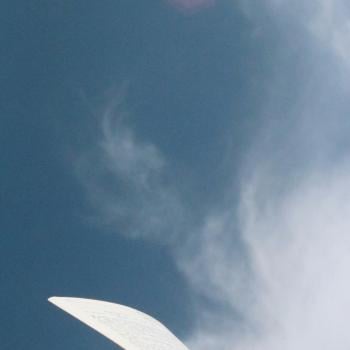
Scripture:
Exodus, chapters 30-32; Acts, chapter 8
Exodus 32:30-35 (NLT):
The next day Moses said to the people, “You have committed a terrible sin, but I will go back up to the Lord on the mountain. Perhaps I will be able to obtain forgiveness for your sin.” So Moses returned to the Lord and said, “Oh, what a terrible sin these people have committed. They have made gods of gold for themselves. But now, if you will only forgive their sin – but if not, erase my name from the record you have written!”
But the Lord replied to Moses, “No, I will erase the name of everyone who has sinned against me. Now go, lead the people to the place I told you about. Look! My angel will lead the people before you. And when I come to call the people to account, I will certainly hold them responsible for their sins.”
Then the Lord sent a great plague upon the people because they had worshiped the calf Aaron had made.
Observations:
Exodus 32 is, in my view, one of the most important chapters in Scripture. In it we see the range of human responses to God: Moses’ obedience, Aaron’s weakness, the idolatry of the people, and the faithfulness of the Levites. Some people might find this chapter uncomfortable, because of the extreme consequences of idolatry, but we dare not back away simply because the story is unsettling.
At the beginning of the chapter, Moses is on the mountain with God. The people come to Aaron and ask him, “Make us some gods who can lead us.” How ridiculous is that? The true God had been leading them – with power – and had brought them to this mountain. Now, they want Aaron to makethem some gods to lead them? If Aaron had the ability to do that, why didn’t they ask him back in Egypt, before God sent Moses to them.
But Aaron is unwilling to stand up to the people, so “he took the gold, melted it down, and molded it into the shape of a calf” (32:4a, NLT). Later, when Moses confronts Aaron, Aaron lies; he claims that he just threw the gold into the fire – “and out came this calf!” (32:24). Does Aaron really think that Moses will believe that? Does he think that God will believe it?
“A terrible sin”
Three times, Moses refers to this idolatry as “a terrible sin” (to Aaron, v 21; to the people, v 30; and to God, v 31). And it is; they ignored the very heart of the commandments that God had given them. They turned away from God, and they turned to idols – false gods that were the work of human hands. It was terrible because it demonstrated a rejection of the God who had heard their cries and rescued them from slavery in Egypt.
It was also a terrible sin because of the consequences. The people were out of control in their revelry, so Moses called for “all who are on the Lord’s side” to join him. The Levites did so, and they went through the camp, killing those who were engaged in this terrible sin. The sin was terrible, and the consequences were terrible. And this reminds us that God takes sin and disbelief seriously. Abandoning and rejecting God are serious acts, and they have serious consequences.
“Erasing their names”
When Moses returns to God’s presence in our passage at the end of chapter 32, he pleads with God to forgive the people. He says, “if not, erase my name from the record you have written!” That sounds like an ultimatum to God, but I don’t believe that’s what it was. I think Moses was simply demonstrating how much he identified with his people, the Israelites. He recognized that God viewed them collectively as His people – so in some sense, the sin of the people was also the sin of Moses.
It is true that God viewed the people collectively as His people, but He also holds people individually responsible for their own unbelief. “No, I will erase the name of everyone who has sinned against me.”If we believe that sin and unbelief are “no big deal,” this ought to make us reconsider. All of the people of Israel were part of the covenant which God had made with Abraham, Isaac, and Jacob – but their idolatry and unbelief would result in God “erasing their names.” What a frightening judgment!
“Erasing their names” is an eternal, spiritual judgment – but their sin also had more immediate consequences. “Then the Lord sent a great plague upon the people because they had worshiped the calf Aaron had made.” Sin has consequences – whether or not we consider that we are “God’s people.” Those consequences may include difficulties in this life – but those pale in comparison to the eternal consequences of idolatry and unbelief.
Application:
We don’t think too much about idolatry these days; very few people (if any) have a golden calf in their home to which they burn incense or offer sacrifices. But there are many idols which may cause us to push God to the margins of our lives: money; power; fame; pleasure; popularity – just to name a few. We need to recognize that those things can be idols just as much as a golden calf.
We also need to recognize that God is not buying our excuses for how those things became idols to us. When Aaron said, “out came this calf,” that was a sly way of trying to blame God for it. Do we do that? Well, when we attribute events to God that clearly result from our disobedience, that’s the same as saying “out came this calf.” We cannot sanitize our sin by claiming that God “must have planned this.” God does not “plan” our disobedience. He works around it; he seeks to remedy it; but he never “plans” it.
Finally, the seriousness of sin is also emphasized by God’s own statement: I will erase the name of everyone who has sinned against me. These were “His people.” He made a covenant with Abraham, Isaac, and Jacob hundreds of years before, and God honors his covenants – but that does not mean that he tolerates sin. Indeed, the very nature of God is such that he cannot tolerate sin. Disobedience ultimately results from unbelief – and unbelief separates us from God.
Prayer:
Father, thank you for reminding us that sin and unbelief is serious – not because you’re trying to scare us, but because you want us to recognize that what we do reflects what we really believe about you. Help us to live in ways that reflect what we believe. You are holy, and you call your people to be holy. We can’t do that on our own; we need your help. But you have given us the help we need in the presence of your Holy Spirit. Help us to walk in your ways today. Amen.













